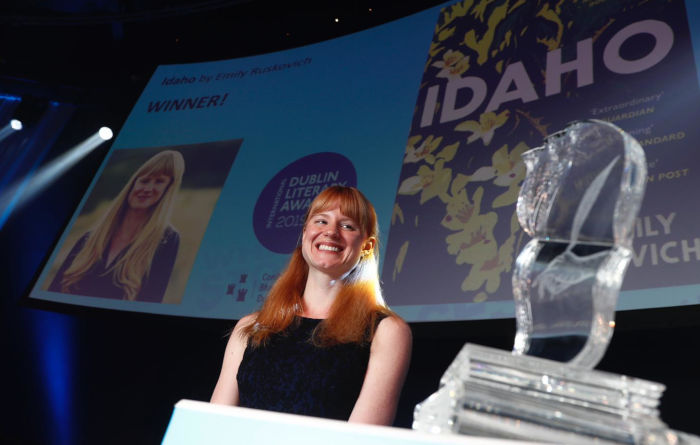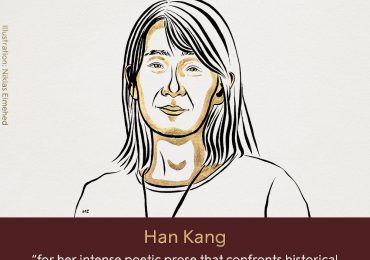American author Emily Ruskovich has won the 2019 International Dublin Literary Award, known as ‘the world’s richest annual literary prize’, for her novel Idaho.
The award, worth €100,000 (about R1.65 million) and awarded annually to ‘a single work of fiction published in English’, is organised by Dublin City Council in Ireland, with nominations being submitted by library systems in major cities throughout the world.
Three African authors were nominated for the award, Ayọ̀bámi Adébáyọ̀, Zinzi Clemmons and Omar El Akkad, but none made the ten-book shortlist.
Ruskovich is the fourth American author to win the prize in its twenty-four-year history. Idaho was chosen from a total of 141 nominated novels, nominated by libraries in 115 cities across forty-one countries in Africa, Europe, Asia, the United States and Canada, South America and Australia and New Zealand.
The thirty-three-year-old’s debut novel was put forward for the prize by just one library: a branch in Bruges, Belgium.

Commenting on her win, Ruskovich said:
I cannot express how grateful I am to be the recipient of this astonishingly generous award. It is difficult to know how to respond to the magnitude of this kindness that has been so suddenly bestowed upon me. I feel shocked. I feel humbled. I feel overwhelmed with the enormity of my gratitude. I am especially honoured because of the admiration that I feel for the other finalists, authors from all over the world who are all doing such crucial and beautiful work. Seeing my name beside theirs when the shortlist was announced—that alone was one of the greatest honours of my career.
Watch Ruskovich’s acceptance speech:
The 2019 judging panel commented:
At the heart of Emily Ruskovich’s haunting debut novel is the inexplicable. A young couple, Jenny and Wade, move from the prairies to the utter loneliness and unexpected isolation of the Northern Idaho mountains where they carelessly bought a piece of wooded land on a steep mountainside. As yet, they know nothing about the winter that will entrap them: masses of snow, no plow, no neighbours, the next settlement eight miles away. This is not an idyll. Years go by. They build a house with their own hands; two children are born – May and June. Then, all of a sudden, in a brutal flash, with no warning, their happiness and their love are destroyed forever.
Ruskovich’s masterful achievement is to narrate with consummate skill the complex series of events covering a time-span of more than fifty years. Empathy and love stand next to cruelty and crime. Individual guilt, trauma and pain are looming as large as eventual forgiveness and the ability to live in half-knowledge. Ultimately, Idaho evolves into a masterpiece on the redeeming and regenerative potential of music, poetry, literature and art.
The judges for this year’s prize were Éilís Ní Dhuibhne, Ge Yan, Evie Wyld, Martin Middeke and Hans-Christian Oeser. The non-voting chair was Judge Eugene Sullivan.
The public library in Brugge who nominated Idaho commented:
This special debut novel is a real gem because of the atmosphere as well as the special structure of the novel. Ann Mitchell and her husband Wade live on a woody mountain in Idaho. We know from the beginning that the ex-wife is in prison and the two daughters are dead or missing. It’s difficult to unravel the mystery because Wade suffers from a kind of dementia. What had happened and why? Emily Ruskovich leaves bread crumbs by means of different stories. It’s nice to zig zag through time in a world of multiple truths. Toward the end the stories become shorter and supported by the long descriptions of the lonely, sinister and misty landscape.
Last year’s International Dublin Literary Award winner was Irish author Mike McCormack for Solar Bones. Angolan author José Eduardo Agualusa won the 2017 edition of the award for his novel A General Theory of Oblivion.





